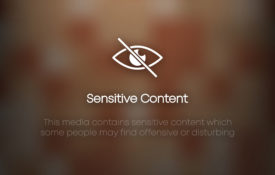-

Cautionary Notes: The Science of Trigger Warnings
Podcast: Are trigger warnings helpful for learning outcomes? Do they shape listeners’ expectations, or do they cause discomfort? APS’s Özge G. Fischer-Baum explores with Dr. Victoria Bridgland of Flinders University.
-
Want to Believe In Yourself? ‘Mattering’ Is Key.
Gordon Flett came across the term “mattering” as a psychology graduate student. Sitting at his desk in 1987, poring over a textbook, “I immediately knew what mattering was,” he said. He remembered visiting his grandmother during the summer as a child and taking trips to the insulation plant where she managed the cafeteria. She hung on his every word, and her co-workers treated him like royalty. Recalling the experience, he could almost taste the Jell-O and chocolate milk. A few years later, the concept landed even closer to home. He was struggling to find research subjects for his master’s thesis and panic was rising.
-

Caution: Content Warnings Do Not Reduce Distress, Study Shows
Advocates for the use of trigger warnings suggest that they can help people avoid or emotionally prepare people for encountering content related to a past trauma. But research indicates the warnings only heighten anticipatory anxiety.
-
Don’t Let Love Take Over Your Life
If you have a romantic partner, maybe you’ve noticed that you two spend an awful lot of time together—and that you haven’t seen other people quite as much as you’d like. Or if you’re single (and many of your friends aren’t), you might have gotten the eerie feeling that I sometimes do: that you’re in a deserted town, as if you woke one morning to find the houses all empty, the stores boarded up. Where’d everyone go? Either way, that feeling might not just be in your head.
-
Why We Think Working Hard Makes You a Good Person
Working hard shows others that we're reliable. But work for work's sake has taken over, leading to burnout and inefficiency. Social psychologist Azim Shariff analyzes the morality of work. ...
-

New Research in Psychological Science
A sample of research on peer beliefs, thinking beyond COVID-19, visual perception in young infants, adaptive encoding speed in working memory, and much more.

